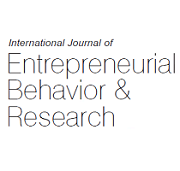CFP – 5th Annual Entrepreneurship as Practice Conference and PhD Symposium 2020 – March 30 – April 3 – Amsterdam
5th Annual Entrepreneurship as Practice Conference and PhD Symposium 2020
PhD Symposium: March 30 – April 3 2020
Conference: March 31 – April 2 2020
Source: https://www.entrepreneurshipaspractice.com/5th-eap-conference-apr-2019
CFP: Final Call for Papers EAP5
Host: Vrije Universiteit Amsterdam, The Netherlands
Organizing team: Karen Verduijn (VU Amsterdam), Neil Thompson (VU Amsterdam), Orla Byrne (UC Dublin), Bill Gartner (Babson College), Bruce Teague (Eastern Washington), Inge Hill (Coventry), Thomas Cyron (Jönköping University)
Confirmed keynote speaker: Chris Steyaert (University of St. Gallen)
Important Dates:
December 16, 2019 Abstract Submission Deadline
December 20, 2019 Notification of Acceptance
February 16, 2020 Full Paper Submission Deadline
March 1, 2020 Registration Deadline
March 31 – April 2 2020 Conference Dates
March 30 – April 3 2020 PhD Symposium
ABOUT THE CONFERENCE
The 5th version of this conference aims to advance our understanding of entrepreneurship-as-practice, foster network ties, facilitate collaborative writing relationships, and build a strong community of practice scholars. To do so, we have developed a Research Conference and PhD Symposium that educates interested scholars as well as develops empirical and conceptual papers regarding the ‘practice turn’ taking place in entrepreneurship studies.
Building on the first (February 2016 at VU Amsterdam), second (February 2017 at University College Dublin Quinn School of Business), third (April 2018 at Linnaeus University) and fourth (April 2019 at Nantes Business School) Entrepreneurship-as-Practice conferences, this conference and PhD symposium bring the growing community of researchers who embrace the “practice turn” back to Amsterdam.
INTRODUCTION
The practice tradition (also known as practice-based studies, the practice approach or the practice lens) in the social sciences forefronts the notion that practices and their connections are fundamental to the ontology of all social phenomena (Rouse, 2006; T. Schatzki, Knorr-Cetina, & Savigny, 2001). Ventures, firms or startups, in this view, are not ontologically separate phenomena from the performance of everyday, materially accomplished and ordered practices (Chalmers & Shaw, 2017; Hill, 2018; Johannisson, 2011; Vincent & Pagan, 2019). This is to say that no description or explanation of features of entrepreneurial life—such as, recognizing, evaluating and exploiting opportunities—is possible without the ‘alternate’ description and explanation of how entrepreneurial life is actually lived in and through practices (Gross, Carson, & Jones, 2014; Keating, Geiger, & Mcloughlin, 2013). The term ‘practice’, therefore, does not refer to an ‘empty’ conceptual category of ‘what entrepreneurs think and do’ (Sklaveniti & Steyaert, 2019), but encompasses the meaning-making, identity-forming and order-producing interactions (Chia & Holt, 2006; Nicolini, 2009) enacted by multiple entrepreneurial practitioners and situated in specific (historical) conditions. Therefore, practice theories orient entrepreneurship scholars to take seriously the practices of entrepreneuring as they unfold and are experienced in real-time rather than as they are remembered. Simply put, practice scholars are concerned with the ‘nitty-gritty’ work of entrepreneuring—all the meetings, the talking, the selling, the form-filling and the number-crunching by which opportunities actually get enacted (Matthews, Chalmers, & Fraser, 2018; Whittington, 1996). This comes with considerable ontological, theoretical and methodological implications which will be addressed during the Conference and PhD Symposium.
For background and information on EaP literature, prior conferences, media and other pertinent materials, please go to: https://www.entrepreneurshipaspractice.com.
STRUCTURE OF THE CONFERENCE AND PhD SYMPOSIUM
The Conference will be held over three full days, March 31st- April 2nd. March 31st will be about Mapping the developing field of EaP that includes plenary sessions and an unconference event (https://en.wikipedia.org/wiki/Unconference), concluding with drinks. April 1st will be about Methodological approaches and publishing EaP research and include keynote session, parallel sessions on various methodologies, and plenary session. We will end the day with a boat ride, tour of entrepreneurial district and dinner. April 2nd will prominently feature the paper development workshop and a keynote lecture, with the conference ending around 16.30.
The PhD symposium includes 30th March (late afternoon and evening) up until 3rd April morning (until lunch). PhD candidates who want ECTS credits for their participation are required to attend. In these additional sessions, PhD students will be able to ask questions about EaP, meet and discuss ideas for research as well as generate additional work and discussion beyond what is required by other participants in the conference. Affordable hotels during entire duration are being held in Amsterdam for selected participants.
CALL FOR PAPERS
We welcome papers employing theories of practice to understand a wide array of entrepreneurship phenomena.
Potential, although not exclusive, topics that may be addressed include:
Theoretical Challenges: What are the differences between the individualism, structuralism and practice traditions of entrepreneurship research? How is the process approach to entrepreneurship (entrepreneuring) similar to and different from practice approach? How are entrepreneurial behaviour theories (discover, creation, effectuation, bricolage) similar and different than practice-based theories? How can we carve out insights and theories without the traditional aim of reification and generalization, given practice theories’ phenomenological roots? How can we theoretically cope with the enormous diversity of practices in which entrepreneurship is implicated? How can entrepreneurship studies help to theorize the reproduction and transformation of practical knowledge? How can we incorporate embodiment and sociomateriality into our understanding of practices related to entrepreneurship? How can an EaP perspective rejuvenate our thinking about traditional entrepreneurship related topics of innovating, creating opportunities, networking, venturing, strategizing, financing and organizing? What is the value of existing theoretical frameworks of practice for entrepreneurship research, and when should we employ or go beyond them? (How) are EaP contributions critical?
Methodological and Empirical Challenges: How does one begin an EaP study, such as selecting and entering a site for observation? As theories of practice guide us to study the real-time and unique instances of practices related to entrepreneurship, how can we observe, analyse and theorize about these unique instances, whilst still accounting for their relations to other practices? What are some common research questions that can be formulated and answered using an EaP perspective, and which practice theory is appropriate for which research questions in entrepreneurship? How can one catalogue and rigorously analyse large amounts of video-based ethnographic data? What can we methodologically learn from the history of the Strategy as Practice (SaP) community?
ABSTRACT / PAPER SUBMISSION
All those are interested to attend the conference should submit an abstract (of approximately 1,000 words) by December 16, 2019 to .
Abstracts should not exceed two single-spaced pages, and may not exceed the maximum limit of 1,000 words. They should present the purpose of the research, the relevance of the problem, the literature review, the methods and the main findings. Authors will be notified of acceptance or otherwise by December 20, 2019. Full working papers are due for February 16, 2020.
The manuscript should be 10-15 pages, Times New Roman 12, single spacing. Abstracts and papers should be written and presented in English.
All working papers will be assigned to discussion groups. Each group member will be responsible for providing feedback on the papers received during the working paper session on April 2nd.
Conference Fees:
Fees for Research Conference participants: 525 euros
Fees for PhD Symposium (inclusive Research Conference) for selected participants: 275 euros
Registration:
After abstract acceptance, please go to www.entrepreneurshipaspractice.com
Questions:
References
Chalmers, D. M., & Shaw, E. (2017). The endogenous construction of entrepreneurial contexts: A practice-based perspective. International Small Business Journal: Researching Entrepreneurship, 35(1), 19–39.
Chia, R., & Holt, R. (2006). Strategy as Practical Coping: A Heideggerian Perspective. Organization Studies , 27(5), 635–655.
Gross, N., Carson, D., & Jones, R. (2014). Beyond rhetoric: re-thinking entrepreneurial marketing from a practice perspective. Journal of Research in Marketing and Entrepreneurship, 16(2), 105–127.
Hill, I. (2018). How did you get up and running? Taking a Bourdieuan perspective towards a framework for negotiating strategic fit. Entrepreneurship and Regional Development, 1–35.
Johannisson, B. (2011). Towards a practice theory of entrepreneuring. Small Business Economics, 36(2), 135–150.
Keating, A., Geiger, S., & Mcloughlin, D. (2013). Riding the Practice Waves: Social Resourcing Practices During New Venture Development. Entrepreneurship: Theory and Practice, 38(5), 1–29.
Matthews, R. S., Chalmers, D. M., & Fraser, S. S. (2018). The intersection of entrepreneurship and selling: An interdisciplinary review, framework, and future research agenda. Journal of Business Venturing, In Press.
Nicolini, D. (2009). Zooming in and out: studying practices by switching theoretical lenses and trailing connections. Organization Studies, 30(12), 1391–1418.
Rouse, J. (2006). Practice theory. In D. M. Gabbay, P. Thagard, & J. Woods (Eds.), Handbook of the Philosophy of Science (Vol. 15, pp. 500–540). Elsevier.
Schatzki, T., Knorr-Cetina, K., & Savigny, E. von. (2001). The practice turn in contemporary theory. (T. R. Schatzki, K. Knorr-Cetina, & E. von Savigny, Eds.). London: Routledge.
Sklaveniti, C., & Steyaert, C. (2019). Reflecting with Pierre Bourdieu: Towards a reflexive outlook for practice-based studies of entrepreneurship. Entrepreneurship and Regional Development, (forthcoming), 1–21.
Vincent, S., & Pagan, V. (2019). Entrepreneurial agency and field relations: A Realist Bourdieusian Analysis. Human Relations, 72(2), 188–216.
Whittington, R. (1996). Strategy as practice. Long Range Planning, 29(5), 731–735.
Source: https://www.entrepreneurshipaspractice.com/5th-eap-conference-apr-2019




